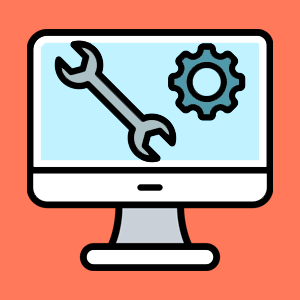 In the fast-paced world of IT, support systems are undergoing a transformative evolution. As organizations grow more reliant on complex technology infrastructures, traditional helpdesks are being pushed to their limits. Enter Artificial Intelligence (AI)—a powerful force redefining the way businesses approach IT support.
In the fast-paced world of IT, support systems are undergoing a transformative evolution. As organizations grow more reliant on complex technology infrastructures, traditional helpdesks are being pushed to their limits. Enter Artificial Intelligence (AI)—a powerful force redefining the way businesses approach IT support.
This blog explores how AI is revolutionizing IT helpdesks, its advantages and limitations, and what the future holds for AI-driven IT support.
The Traditional IT Helpdesk: Challenges and Limitations
For years, IT helpdesks have been the go-to resource for resolving technical issues, onboarding employees, and maintaining system uptime. However, traditional models often struggle with:
- High Volume of Tickets: Helpdesks face increasing demands, leading to delays and unresolved issues.
- Repetitive Tasks: A significant portion of tickets involve routine, repetitive issues like password resets or software updates.
- Limited Availability: Human-operated helpdesks typically function within limited hours, leaving gaps in support coverage.
These challenges have created a need for a smarter, more efficient solution—one that AI is uniquely equipped to provide.
AI: Transforming the IT Helpdesk
AI-driven IT support combines automation, machine learning, and natural language processing (NLP) to provide faster, smarter, and more proactive solutions.
1. Automating Routine Tasks
AI excels at handling repetitive tasks, such as:
- Resetting passwords.
- Configuring user access permissions.
- Diagnosing common hardware and software issues.
This automation reduces the workload on human agents, allowing them to focus on more complex problems.
2. Virtual IT Assistants
AI-powered chatbots and virtual assistants are becoming the first point of contact for IT issues. They can:
- Understand and respond to user queries in real-time.
- Provide step-by-step solutions.
- Escalate issues to human agents when necessary.
Example: Tools like ServiceNow Virtual Agent use AI to deliver instant support, improving user satisfaction.
3. Proactive Problem Detection
AI systems can monitor IT environments continuously, identifying and addressing potential issues before they escalate. For example:
- Detecting anomalies in network traffic to prevent outages.
- Flagging hardware components nearing failure.
- Automating software updates and patch management.
4. Learning and Adapting Over Time
With machine learning, AI systems become smarter with every interaction. Over time, they:
- Identify recurring issues and recommend permanent fixes.
- Optimize workflows for faster ticket resolution.
- Improve accuracy in diagnosing problems.
Benefits of AI-Driven IT Helpdesks
1. 24/7 Availability
Unlike human agents, AI never sleeps. AI-powered systems provide round-the-clock support, ensuring users get help whenever they need it.
2. Faster Response Times
AI can instantly diagnose and resolve many issues, significantly reducing ticket resolution times.
3. Cost Efficiency
Automating routine tasks reduces the need for large IT support teams, cutting costs without compromising service quality.
4. Enhanced User Experience
With personalized and efficient support, AI-driven helpdesks enhance employee satisfaction and productivity.
Challenges and Limitations of AI in IT Support
While AI offers numerous advantages, it’s not without its limitations:
- Complex Problem-Solving: AI struggles with nuanced or highly technical issues requiring creative thinking or deep expertise.
- Initial Setup Costs: Deploying AI systems involves significant investment in infrastructure and training.
- Resistance to Change: Employees may be hesitant to adopt AI-driven systems, fearing job displacement or a lack of human interaction.
- Data Privacy Concerns: AI systems require access to sensitive data, raising privacy and security concerns.
To overcome these challenges, organizations must position AI as a complement to human agents, not a replacement.
The Future of AI in IT Support
AI’s role in IT support is set to grow even more sophisticated. Here are some trends to watch:
- Hybrid Helpdesks: A combination of AI and human agents will deliver seamless support, blending speed with empathy.
- Predictive IT Support: AI will anticipate user needs, such as suggesting solutions before issues are reported.
- Augmented Reality (AR) Integration: AI and AR could enable remote troubleshooting with visual guides and real-time instructions.
- AI-Powered IT Training: AI systems will help train IT staff by simulating scenarios and recommending best practices.
Conclusion
AI is not just transforming the IT helpdesk—it’s redefining what IT support can achieve. By automating repetitive tasks, providing proactive solutions, and offering 24/7 assistance, AI is filling gaps that traditional helpdesks could never address alone. However, human expertise remains irreplaceable for complex problem-solving and customer interaction.
As AI continues to evolve, the future of IT support will likely be a hybrid model where AI and human agents work together to deliver unparalleled efficiency and user satisfaction.
